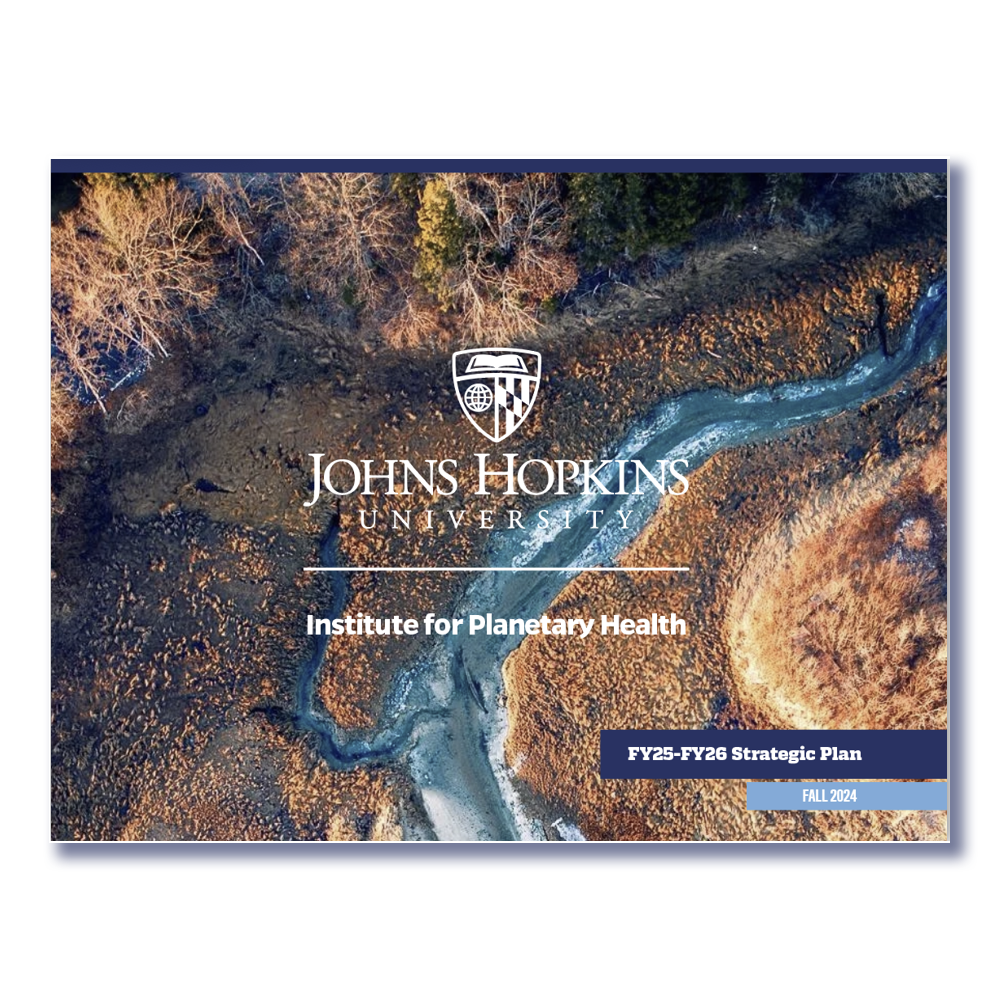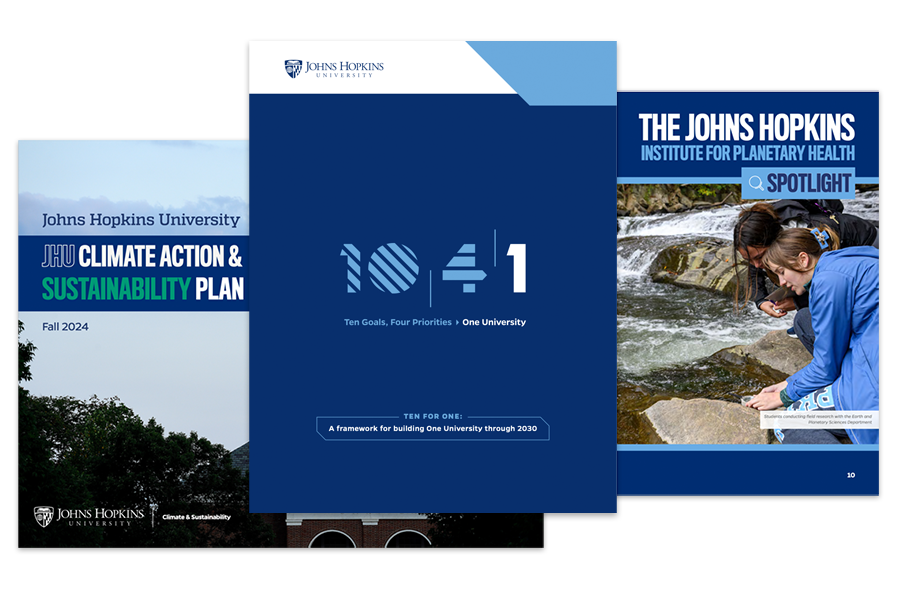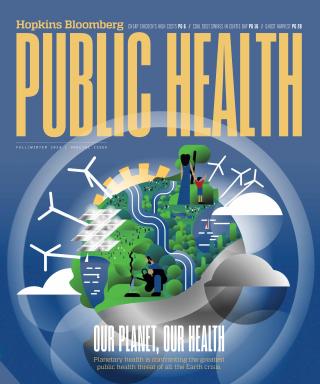FY25-FY26 Strategic Plan
Since launching in April 2024, JHIPH has engaged a dedicated team of cross-university faculty who are moving swiftly and strategically to develop cross-university Planetary Health programming. These efforts will constitute the core of JHIPH’s programming during this strategy period (FY25-FY26) and be instrumental in building JHU’s Planetary Health community.
JHIPH’s strategic plan gives shape to these programs and intention to JHIPH’s community building efforts, both within JHU and the global community through JHIPH’s partnership with the Planetary Health Alliance.
For orientation, JHIPH’s strategic plan, includes:
- Introduction (pages 3-8) provides information about the transdisciplinary field and global Planetary Health movement and its connection to JHU’s strategic priorities.
- JHIPH’s FY25-26 Strategic Direction (pages 9-11) outlines the vision, guiding principles, and three strategic Institute priorities.
- JHIPH’s Faculty Programs (pages 12-22) outline the vision, strategic priorities, and objectives of each of JHIPH’s program initiatives.
- JHIPH’s Student Affiliates (page 23) list of JHIPH’s current student group affiliates
- Future Directions (page 23) list of potential future programming
- Operational Enablers (pages 24-29) outlines JHIPH’s approaches to creating the Institute’s infrastructure.

FY25-FY26 Strategic Plan
Explore and download JHIPH’s FY25-FY26 Strategic Plan.
read the plan
Why Planetary Health at Johns Hopkins?
As America’s oldest research university, Johns Hopkins has long been at the forefront of cutting-edge discovery and addressing global challenges. Johns Hopkins leadership understands that Planetary Health is an urgent global challenge that needs a whole of society – and therefore a whole of university – approach to find ways to address the deep structural transformations needed to create a just and thriving future.
As outlined in JHU’s Climate Action and Sustainability Plan, JHU now stands ready to promote ambitious decarbonization and sustainable consumption patterns, making Johns Hopkins a leading inspiration for the planet’s transition to a low-carbon, healthy, and resilient future.
JHU’s goals for research, teaching, and scholarship are solutions oriented and focused on leveraging JHU’s transdisciplinary expertise to lead much-needed innovation while preparing its students and communities for a rapidly changing world. In April 2024, JHU launched the Johns Hopkins Institute for Planetary Health (JHIPH) to accelerate cross-university collaboration that expand the horizons of transdisciplinary discovery and activate solutions that address global scale degradation of the natural environment and those impacts on health and well-being.

Interested in Planetary Health? Become an affiliate!
All faculty and staff across Johns Hopkins University are invited to affiliate themselves with JHIPH. Fill out this form to be notified of events, seminars, and other special opportunities organized by the institute.

Learn More About Planetary Health
JHIPH is deeply grateful to the Johns Hopkins Bloomberg School of Public Health for their unwavering commitment to global health and focus on Planetary Health in their latest special issue of the Hopkins Bloomberg Public Health magazine.
Learn more
